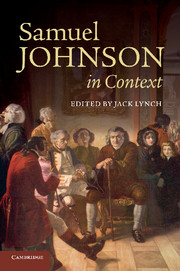Book contents
- Frontmatter
- Contents
- Illustrations
- Contributors
- Preface
- Chronology
- Abbreviations
- Part I Life and works
- Part II Critical fortunes
- Chapter 4 Editions
- Chapter 5 Translations
- Chapter 6 Critical reception to 1900
- Chapter 7 Critical reception since 1900
- Chapter 8 Representations
- Chapter 9 Reputation
- Part III Contexts
- Further reading
- Index
Chapter 4 - Editions
from Part II - Critical fortunes
Published online by Cambridge University Press: 05 June 2012
- Frontmatter
- Contents
- Illustrations
- Contributors
- Preface
- Chronology
- Abbreviations
- Part I Life and works
- Part II Critical fortunes
- Chapter 4 Editions
- Chapter 5 Translations
- Chapter 6 Critical reception to 1900
- Chapter 7 Critical reception since 1900
- Chapter 8 Representations
- Chapter 9 Reputation
- Part III Contexts
- Further reading
- Index
Summary
EDI′TION. n.s. [editio, Latin.]
2. Republication; generally with some revisal or correcting.
The business of our redemption is to rub over the defaced copy of the creation, to reprint God’s image upon the soul, and to set forth nature in a second and a fairer edition. South.
Editions of writers exert a great influence on their posthumous reputation, forming a canon of works, explicating their meanings by annotation (particularly where historical distance has made them obscure), and presenting the text as the author originally intended. When measured against these idealistic aims, editions of Samuel Johnson have tended to fall short until relatively recently, for reasons that are partly the result of the peculiar nature of his achievements, as well as the caprices of editing and printing in the decades following his death.
Anonymity
When the variety of Johnson’s writings is considered, it is not hard to see why editions of him have been so affected with difficulties, both in forming a canon of works that can be attributed to him and in establishing an accurate text. While there are some works with Johnson’s name on the title page, and others he later acknowledged as his own, in many other cases it is impossible to gauge the full extent of his involvement. Johnson lent his pen to anonymous contributions (and so-called “ghost writing”) in the works of friends (such as prefaces, sermons, and lectures), collaborative works which had to be anonymous (accounts of parliamentary debates or other politically sensitive writing), and works of journalism where Johnson would have little reason to acknowledge his contribution, given that in selling such writings, he had also sold his name in them (see chapter 2, “Publication history”).
- Type
- Chapter
- Information
- Samuel Johnson in Context , pp. 31 - 37Publisher: Cambridge University PressPrint publication year: 2011

